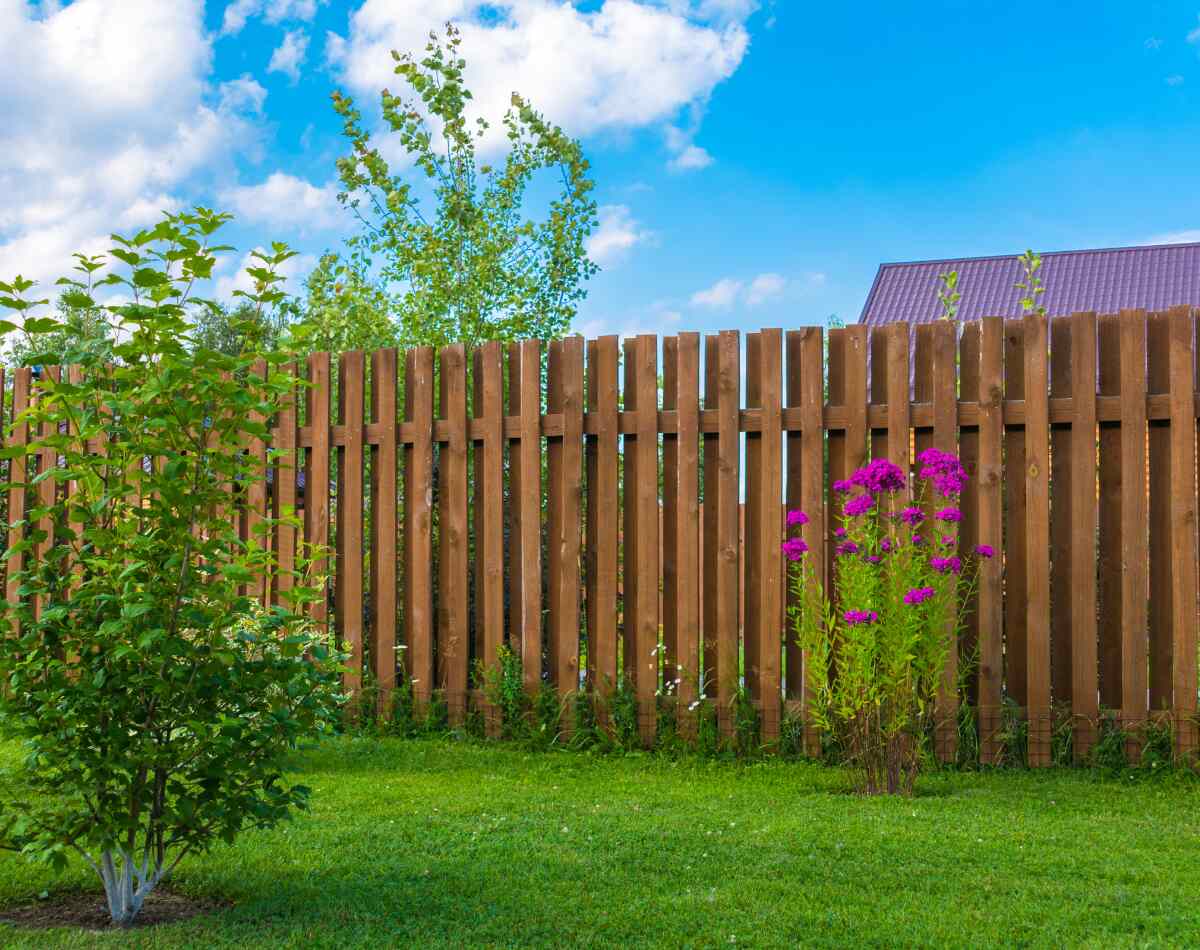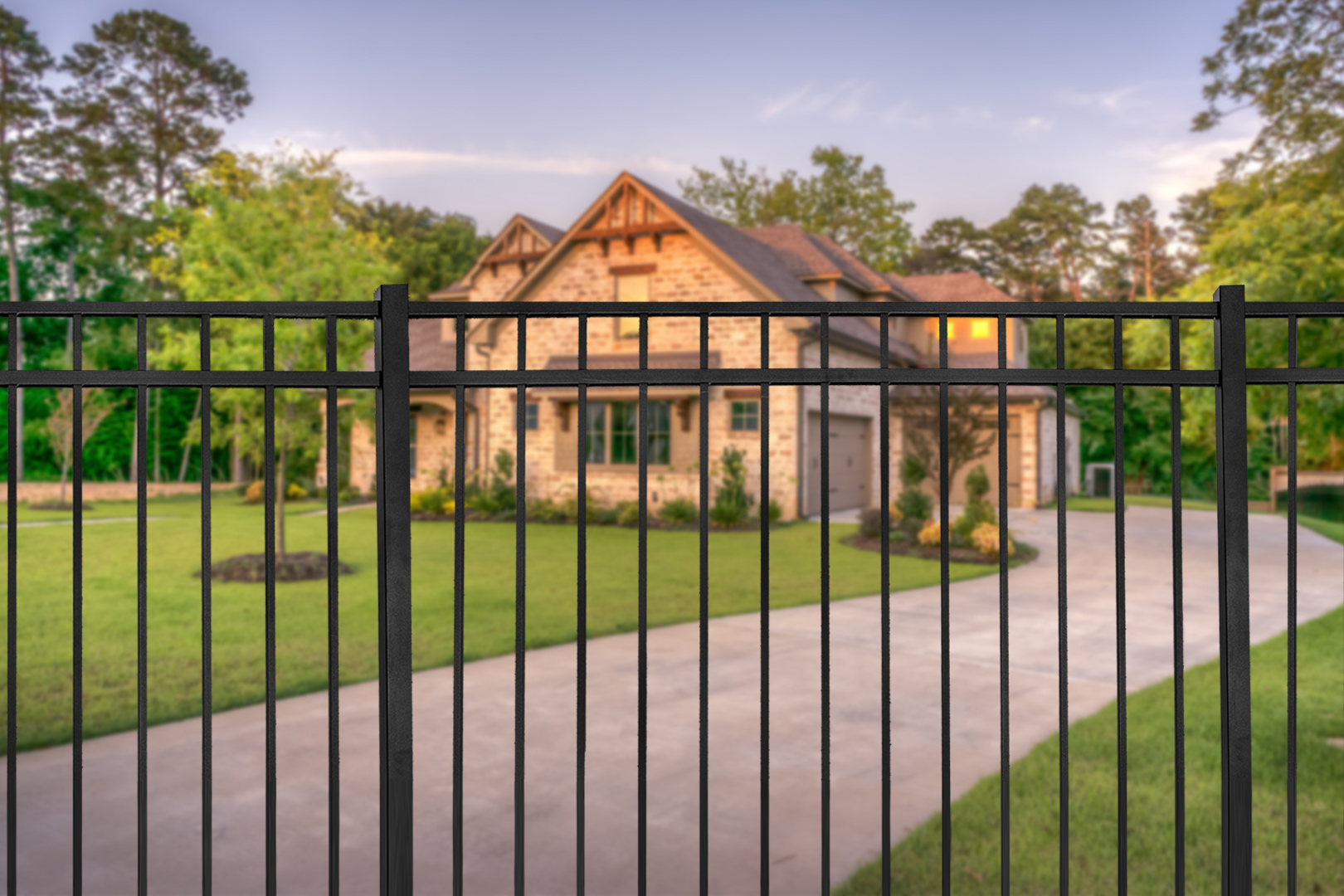All Categories
Featured
Selecting the right fencing for your residential or commercial property involves careful factor to consider of performance, visual appeals, spending plan, and long-term upkeep. Whether you're looking to boost personal privacy, enhance aesthetic charm, or safeguard your residential property, understanding your choices will aid you make an informed choice. Here's an extensive guide to choosing the suitable fencing for your demands.
![]()
Privacy: Tall, solid fences like wood or vinyl are ideal for obstructing presence. Safety and security: Tough products like aluminum or steel offer a safe obstacle. Visual Appeal: Attractive fences, such as functioned iron or picket styles, improve aesthetic charm. Control: For children or pet dogs, fencings like chain-link or vinyl are useful selections. Sound Decrease: Dense products, such as composite fence, can assist wet noise. Clearly identifying your goals will limit your options substantially.
Timber: Offers an all-natural, timeless look and is very customizable but needs normal upkeep. Vinyl: Low upkeep and resilient but may have a greater initial cost. Aluminum: Lightweight, rust-resistant, and sophisticated, though not optimal for personal privacy. Chain-Link: Practical and economical yet lacks visual allure and privacy. Wrought Iron: Ornamental and long lasting but can be costly and calls for upkeep. Compound: A blend of wood and plastic, providing resilience with a wood-like appearance. Select a product that straightens with your concerns and complements your home's design.
![]()
Low Upkeep: Vinyl, aluminum, and composite fencings require occasional cleaning. Moderate Upkeep: Wrought iron fencings may need painting to stop rust. High Upkeep: Wood fences require routine discoloration, sealing, or painting. Consider just how much effort and time you're willing to purchase maintenance over the years.
A picket fence fits a traditional home. A modern home may look ideal with smooth, minimal fence materials like plastic or metal. A country residential property might profit from rustic timber or split-rail secure fencing. 7. Look For Professional Advice. Consulting a secure fencing expert can assist guarantee you pick the ideal material, layout, and setup process for your residential property. Specialists can assess aspects like dirt slope, climate, and type to recommend the most appropriate choices.
Verdict. Choosing the best fencing for your residential property involves stabilizing functionality, visual appeals, and cost. Beginning by recognizing your objectives, exploring materials, and taking into consideration upkeep and budget. With thoughtful planning and professional recommendations, you can discover the perfect fencing to improve your residential or commercial property's worth, protection, and appeal for years to come.
- Define Your Purpose. The initial step in choosing a fencing is figuring out why you require one. Typical functions consist of:

Privacy: Tall, solid fences like wood or vinyl are ideal for obstructing presence. Safety and security: Tough products like aluminum or steel offer a safe obstacle. Visual Appeal: Attractive fences, such as functioned iron or picket styles, improve aesthetic charm. Control: For children or pet dogs, fencings like chain-link or vinyl are useful selections. Sound Decrease: Dense products, such as composite fence, can assist wet noise. Clearly identifying your goals will limit your options substantially.
- Think About Product Options. Each fencing product has unique high qualities, benefits, and downsides. Right here's a fast summary:
Timber: Offers an all-natural, timeless look and is very customizable but needs normal upkeep. Vinyl: Low upkeep and resilient but may have a greater initial cost. Aluminum: Lightweight, rust-resistant, and sophisticated, though not optimal for personal privacy. Chain-Link: Practical and economical yet lacks visual allure and privacy. Wrought Iron: Ornamental and long lasting but can be costly and calls for upkeep. Compound: A blend of wood and plastic, providing resilience with a wood-like appearance. Select a product that straightens with your concerns and complements your home's design.

- Element in Upkeep Needs. Various secure fencing materials need differing levels of care:
Low Upkeep: Vinyl, aluminum, and composite fencings require occasional cleaning. Moderate Upkeep: Wrought iron fencings may need painting to stop rust. High Upkeep: Wood fences require routine discoloration, sealing, or painting. Consider just how much effort and time you're willing to purchase maintenance over the years.
- Examine Your Budget plan. Fencing costs consist of both materials and installation. While chain-link and wood are normally a lot more affordable upfront, products like vinyl and aluminum may conserve cash in the future as a result of lowered upkeep demands. Additionally, variable in potential upgrades, such as entrances or attractive elements, when establishing your budget plan.
- Inspect Regional Laws and HOA Rules. Prior to settling your choice, consult regional zoning regulations and home owner organization (HOA) laws. Some areas have height constraints, material limitations, or layout guidelines that may influence your decision.
- Match the Fence to Your Residential property's Design. The design of your fence need to complement your home and landscape. :
A picket fence fits a traditional home. A modern home may look ideal with smooth, minimal fence materials like plastic or metal. A country residential property might profit from rustic timber or split-rail secure fencing. 7. Look For Professional Advice. Consulting a secure fencing expert can assist guarantee you pick the ideal material, layout, and setup process for your residential property. Specialists can assess aspects like dirt slope, climate, and type to recommend the most appropriate choices.
Verdict. Choosing the best fencing for your residential property involves stabilizing functionality, visual appeals, and cost. Beginning by recognizing your objectives, exploring materials, and taking into consideration upkeep and budget. With thoughtful planning and professional recommendations, you can discover the perfect fencing to improve your residential or commercial property's worth, protection, and appeal for years to come.
Latest Posts
Discover Limited-Time Auto Repair Specials in Chicago at Montclare Auto Repair
Published May 27, 25
1 min read
Secure Your Home with Top Quality Residential Roof Covering
Published May 26, 25
1 min read
Enhance Your Home with Expenses Door Solution
Published May 23, 25
1 min read